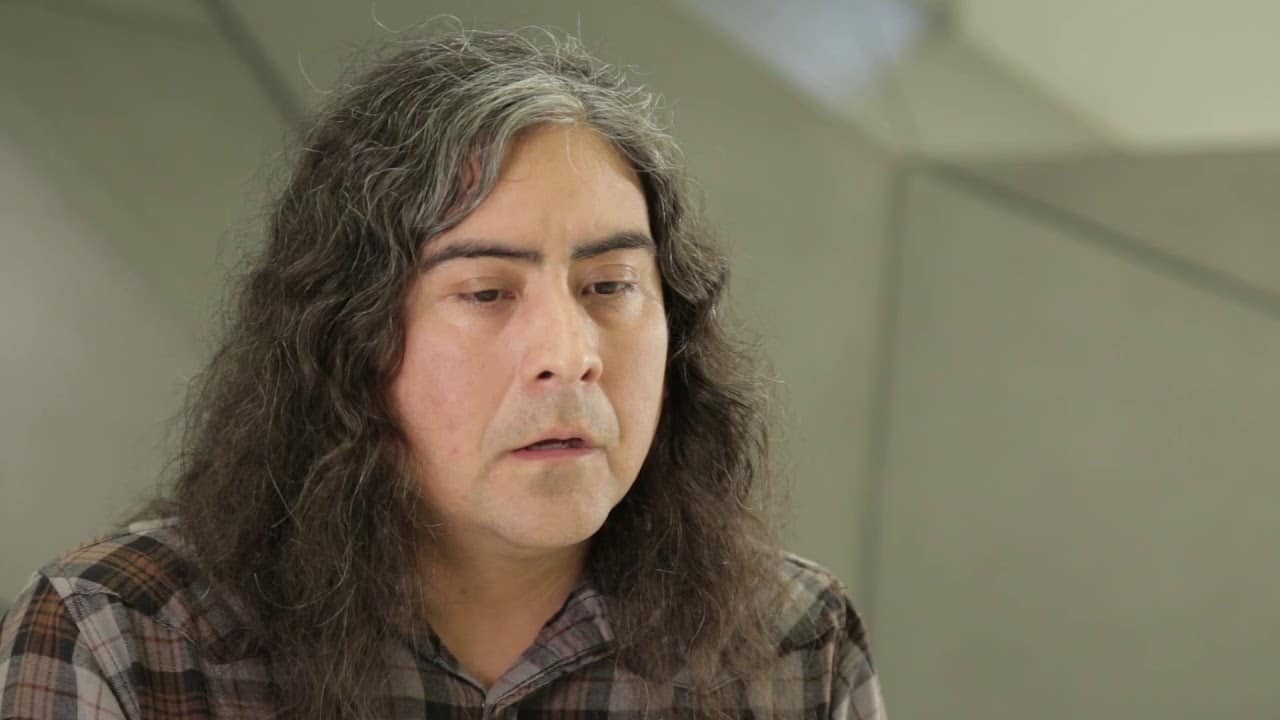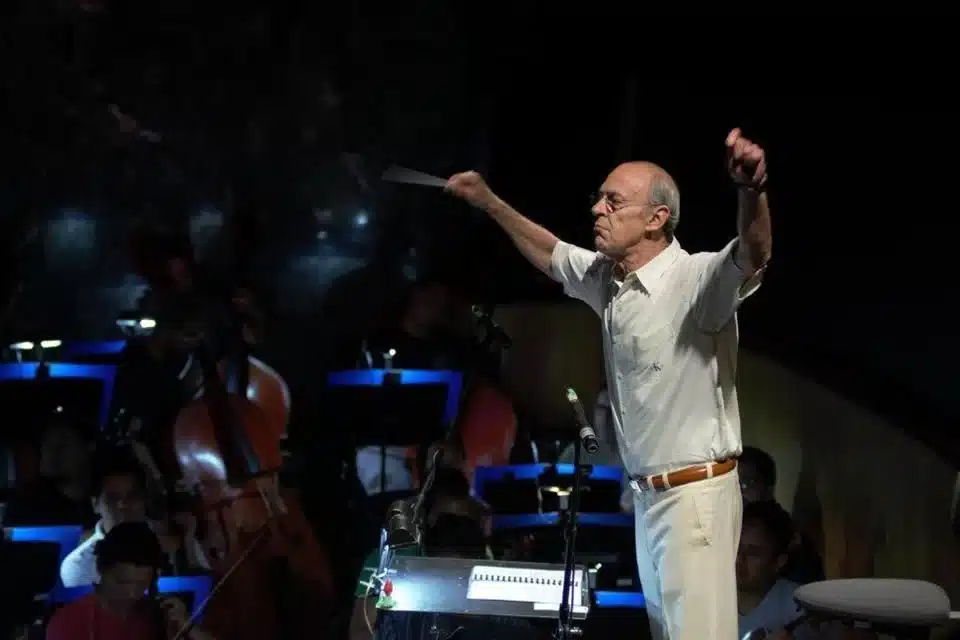Pulitzer prize for Navajo Nation composer
NewsThe Pulitzer Prize in Music for 2022 has been awarded to Raven Chacon for his composition for organ and ensemble, Voiceless Mass, premiered last November at Milwaukee’s Cathedral of St. John the Evangelist.
Chacon, 44, is a composer, performer and installation artist from the Navajo Nation.
‘This was my first time writing for a church organ and I wanted to make a statement about the space that this organ is housed in,’ said Chacon. ‘I wanted to think about the church’s role in the forming of the country, particularly as it pertains to Indigenous people.’






Highly original composer. Well deserved I’m sure.
Chacon writes sonic art:
https://www.youtube.com/watch?v=w43dC8aNWiw
It is the well-know art form which is ‘pushing the boundaries’ for more than half a century:
https://www.youtube.com/watch?v=OYq99_hIo28&t=16s
Thanks to the fact that these boundaries remain firmly in place, as demonstrated by the vain efforts of so many sound artists, sonic art can continue to exist, remaining forever at the boundaries and never becoming a serious art like music.
‘Chacon’s work explores sounds of acoustic handmade instruments overdriven through electric systems and the direct and indirect audio feedback responses from their interactions.’
https://www.otherminds.org/the-nature-of-music-2/
It’s not music, but it could be termed, maybe, ‘placebo music’ – something that claims to be something that it is not, and still have an effect on people not being informed about the difference.
https://www.youtube.com/watch?v=1DUk9boJzM4
https://www.youtube.com/watch?v=8vnVJXhwwa8&t=2s
It’s not serious….. and it’s populist: anybody can do it, with some cleverness and marketing skills. And you must read the tomes with theory which excuses such exercises. What kind of artistic meaning does it contribute to the world, to human life? Too dangerous a question to tackle.
John Borstlap, this comment confirms what everyone here already knows, that you in fact are a hack composer and a moron when it comes to actual true art.
This is why no one plays Borstlap’s music – and rightly so.
We have here a pile of letters for performance requests, even by the [redacted] orchestra, and people like [redacted], but for me it’s hard to get through them and to answer them all, being distracted by reading all of these SD comments.
When I think of former performances, I found the fisticuffs in the auditorium most disturbing, according to JB they were never in the scores.
Sally
Sound art is exactly the right stuff for this type of commentator, because by the lack of serious argument, such people delve into their stock of spite and illiteracy.
And yes, some dosis of truth may hurt, for some people.
“lack of serious argument … spite and illiteracy”? How can one respond to the intellectual bullying indulged in by Mr Borstlap, who insults anybody who appreciates the sort of music he despises (or denies is music at all) by calling them ignorant, illiterate, ill-informed, deluded?
I’m so very, very glad that you say this. Knowing by experience what the effect of such utterances is, I’m especially pained to see someone saying something that’s unkind or true.
Sally
Well it must be good then.
Hmmm…”Installation art”, “noise music” etc etc.
I see the emperor’s new clothes are looking particularly fine today.
Check out the YouTube videos and be amazed, amused ( delete as per necessary).
I love installation art, because everything you see is exactly what you get. It’s very straightforward and accessible to anyone! It’s entirely democratic. You don’t need to get to know all kinds of stuff that you aren’t really into, and are just burdening the enjoyment of your artistic experience. For that reason I regularly go to the Tate to be reassured of my taste.
Sally
Sorry about that…. my PA always want to issue provocative and unfounded opinions under my name but it appears to be difficult to get her fired (the QWERTY Union Lobby is quite strong over here).
Does anyone know the instrumentation for Voiceless Mass? I looked at the composer’s website for publisher info and couldn’t find any.
That’s cuz it’s a church organ piece. And so the Pulitzer continues to be more irrelevant by the year.
Your first sentence is debatable and I say that as a non-churchgoing individual. I do like the works for pipe organ I’ve heard and have since I was in college. I believe no concert hall, church, auditorium or city hall is legitimate unless it has a pipe organ and NOT a digital or other faux instrument mascerading as an organ. As for the last sentence, I leave the evaluation of that sentiment to others. But I do think the Pulitzer Prize continues to be an esteemed award.
It’s hidden for a secret reason, so that only the elect, really dedicated people get to find the information they need.
In addition to the organ “It is for a large ensemble: flute, clarinet, bass clarinet, two percussionists and strings. Also another instrument is sine tones.” From an NPR interview with Raven Chacon, https://text.npr.org/1097760129
Whyt doesn’t this man write a decent Chaconne for a change? Then he could demonstrate his musical gifts.
What I’ll never understand about people who write this kind of music is why they insist on doing it for traditional instrumentation, and writing it down. I mean it’s not 1870 anymore, if “sound art” is what you’re going for why not use modular synths, sampling, etc. The results would be far more compelling and you wouldn’t have to expect anyone to decipher the notation.
Indeed. Still better is to not notate it at all and create the work directly as a sound experience, in terms of recording. Everybody happy.
As soon as I read that he was a “performance artist” I knew the works would be appalling. Does anyone ever say “I’d love to listen to that Raven Chacon piece again”, or “It was over too soon”?
But you miss the point entirely. It is not meant to be repeated, since it is all about sound patterns, objectively, which don’t need a human ear or emotional experience, they are ‘a thing in itself’. Sonic art works are not for the listener, or the player, not even for the author (as Ligeti carefully explained about sound art), they are ‘acoustic objects’ with their entire meaning within themselves, detached from cultural ties and pre-defined aural expectations like musical traditions. That’s the whole point of sonic art, to arrive at a kind of fresh, new, undiluted objectivity. Aural memory is dependent upon perceiving relationships, so forgetting is built-into sonic art works. And here is the clue: this ‘ensures’ the art form to be experienced new all the time, in spite of being repeated endlessly for half a century: people forget, and hearing it again means encountering it again and again and again for the first time. For this reason it can be considered a kind of ‘dementia music’.
That’s nice. I think a Pulitzer should make up for the greatest genocide in human history.